Director: Martin Campbell
Cast: Mel Gibson, Ray Winstone, Danny Huston, Bojana Novakovic, Shawn Roberts, Jay O. Sanders, Caterina Scorsone, Gbenga Akinnagbe, Denis O’Hare, Damian Young, David Aaron Baker, Caterina Scorsone, Frank Grillo, Wayne Duvall, Wayne Duvall, Gabrielle Popa, Paul Sparks
Running Time: 117 min.
By Zach Nix
Martin Campbell is one of cinema’s underrated directors. Although he has only directed a small batch of films over the course of several decades, most of his action pictures are outstanding. The director is well regarded amongst action fans for pulling off the rare feat of rebooting the James Bond franchise not simply once with 1995’s Goldeneye, but twice with 2006’s Casino Royale. In a sense, Campbell is the action equivalent of Wes Craven in that he rebooted a genre twice within his own lifetime, much the same way that Craven rebooted the slasher genre twice with 1984’s A Nightmare on Elm Street and 1996’s Scream. Campbell also directed the immensely practical and adventurous Zorro reboot, 1998’s The Mask of Zorro. Unfortunately, some of the director’s films have not been entirely successful, as he is also responsible for stinkers like 2005’s The Legend of Zorro and 2011’s Green Lantern. While in no regards a perfect director, Campbell is one of cinema’s hidden gems, a filmmaker who repeatedly pops up throughout time and contributes to the genre in a significant way.
However, I want to bring attention to one of Campbell’s most grossly underrated pictures, 2010’s Edge of Darkness. Based off of the BBC television mini-series of the same name that Campbell also directed, Edge of Darkness is a mature thinking man’s thriller with a strong leading performance from action icon Mel Gibson (Mad Max) and occasional bursts of violence that leave an impact on the viewer. While unfairly derided upon its release by critics as a dull retread on Pierre Morel’s Taken, Campbell’s Edge of Darkness is one of the strongest entries in the now over saturated sub-genre of action films starring actors over 50, which ironically was popularized by Taken itself. The film is also worth checking out in order to get excited for Campbell’s upcoming actioner, The Foreigner, his first in five years and his second with Goldeneye-alum Pierce Brosnan.
After Boston police detective, Thomas Craven (Mel Gibson), picks up his daughter, Emma (Bojana Novakovic), from the airport and brings her back to his home, tragedy strikes when an armed assailant guns her down. While the police assume that Tom was the target of the attack, Tom comes to suspect that his daughter was indeed the target after he realizes that she uncovered a nuclear conspiracy related to her work, Northmoor, a research and development facility. As Tom speaks with various friends and politicians related to Emma, he comes to question those around him and harrows in on those responsible for his daughter’s death.
When critics and audiences went to see Edge of Darkness at the time of its release, most expected an action packed film along the lines of Taken, a film with a similar plot. While it is true that the film does share numerous similarities, such as a determined father’s quest to avenge his daughter, a male protagonist over age 50, and bloody action, Edge of Darkness could not be more different, stylistically and tonally. Whereas Taken and its counterparts are fast paced and action packed, Edge of Darkness is a slow burner with bursts of violence along the lines of a Sergio Leone film. It’s more of a mature thinking man’s thriller that rewards patient viewers than a non-stop thrill ride for short minded action junkies. No offense to Taken, which is a fantastic action film as well, but Edge of Darkness is the kind of dramatic thriller for active viewers, not passive ones.
The original Edge of Darkness mini-series was far more politically charged and primed for British audiences than its big screen adaptation. When screenwriters William Monahan and Andrew Bovell adapted the mini-series to the big screen, they chose to focus more strongly on the emotional and genre aspects of the story, as its political indictment of 1980s Great Britain would not work for a contemporary Hollywood blockbuster. In the making of documentary included on the Blu-ray, Monahan explains that he chose to focus on the emotional aspects of the story because he himself is a father and felt that audiences would connect more strongly to the picture because of that relatable theme. As far as adaptations come, Edge of Darkness is unique in that it turned a previously political thriller into more of an emotional drama that undeniably pulls the viewer in by tugging at their heartstrings.
Campbell’s adaptation also features similar themes of its source material, such as nuclear threat, government conspiracy, and impending doom. However, these themes are pushed more to the background of the story in order to convey an underlying sense of tension. After all, the focus of the story is placed upon Craven’s search for the truth about his daughter, not a quest to stop the creation of nuclear dirty bombs. Many of the conversations that Craven has with various characters involved in the Northmoor nuclear scandal feature loads of unbearable tension that will force several viewers to the edge of their seat, especially during a conversation within a car that stands as the film’s most unforgettable sequence.
Although a mostly talkative thriller, Edge of Darkness still features several incidents of exciting action and bloody violence. The inciting incident in which Craven’s daughter is gunned down is particularly shocking because of its gruesome detail and effective sound design. In fact, every incident of violence within the picture stands out, as Campbell typically builds immense tension before delivering said bloody antics. Gibson also partakes in a solid melee fight and a bloody finale that prove that the aged action icon still has the chops to physically entertain the viewer. However, no action sequence in the picture compares to the climactic incident in which an informant reveals crucial information to Craven before being struck by a car. The shocking scene, followed by the ensuing shootout, prove to be one of Campbell’s greatest sequences in his entire filmography. Even the master of tension himself, Alfred Hitchcock, would have to tip his hat to Campbell’s mastery of the screen image and sound.
Besides the occasional bursts of bloody action, action fans will want to revisit Edge of Darkness for its lead performance by action legend Mel Gibson. At the time of the film’s release, Edge of Darkness was Gibson’s first leading role since 2002’s Signs and We Were Soldiers. Even though the actor had been absent from film for eight years, he fails to skip a beat here as an unstoppable father who puts his life on the line for the truth. For an Australian actor, Gibson even pulls off of the feat of delivering a solid Boston accent, something that Steven Seagal could barely do in Out for Justice. The film also features a notable supporting performance from Ray Winstone (The Departed) as Jedburgh, an operative sent to investigate into the entire manner. Although I left Jedburgh out of the plot’s description, he plays a key role in facing Northmoor’s evil in a miniature sub-plot about redemption that proves to be particularly dark and mature. Although Gibson is the lead, Winstone’s performance proves to be the most rewarding time and time again. Kudos also goes to Bojana Novakovic (You’re Next) as Craven’s daughter, Danny Huston (X-Men Origins: Wolverine) as the film’s lead villain Bennett, and Frank Grillo (Captain America: The Winter Soldier) as a heinous bodyguard.
Although Gibson’s star power is no longer as large as it used too be and Campbell has partially lost his filmmaker credibility after churning out the much maligned Green Lantern, cinema fans should revisit Edge of Darkness in order to restore their faith in these two titans of action cinema. Gibson gives one of his most underrated performances as a determined father/detective that works perfectly as a comeback vehicle for the star. Campbell also further shows his mastery of cinematic tension and action that stands next to his work in both of his Bond films. The film is also worth checking out as a unique anomaly in which a director readapted their own directorial work from the past for the modern age and silver screen. In today’s day and age of over saturated action films starring actors over 50, Edge of Darkness is one of the very best, especially for its Eastwood-ian maturity and simplicity. Whether you give Edge of Darkness a second chance or a first time watch, you won’t regret it.
Zach Nix’s Rating: 8/10


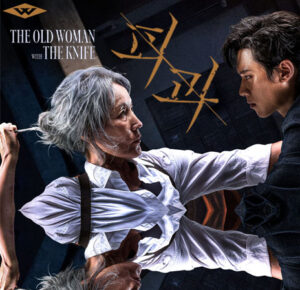
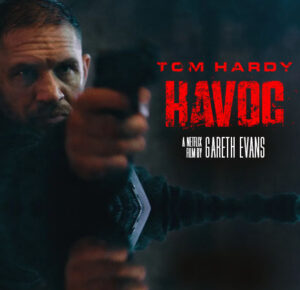
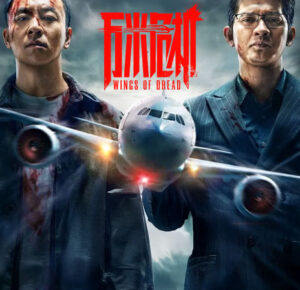
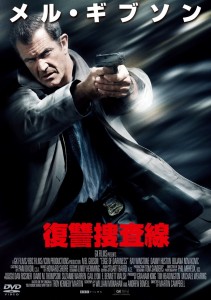
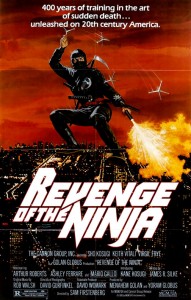
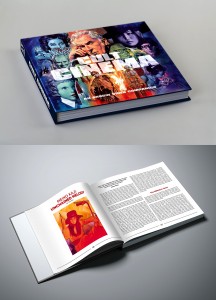

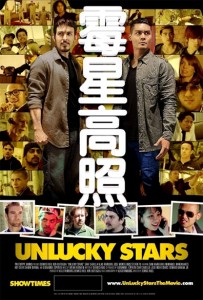
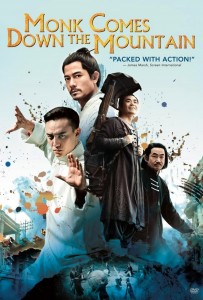




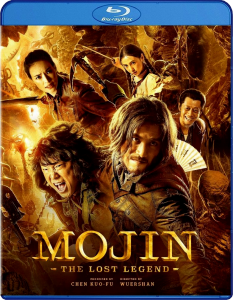






Be the 1st to Comment